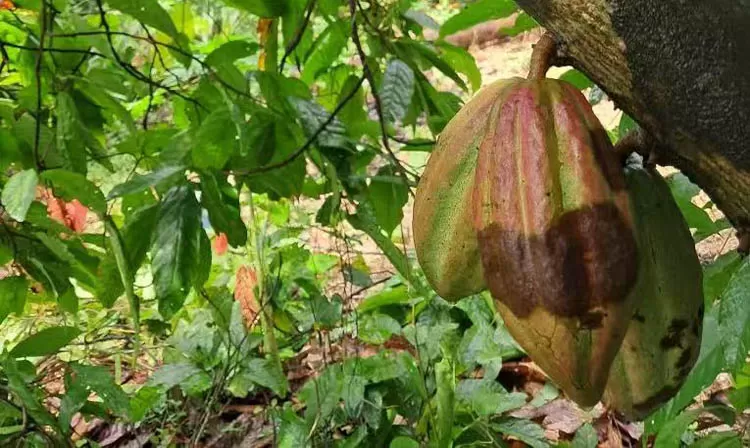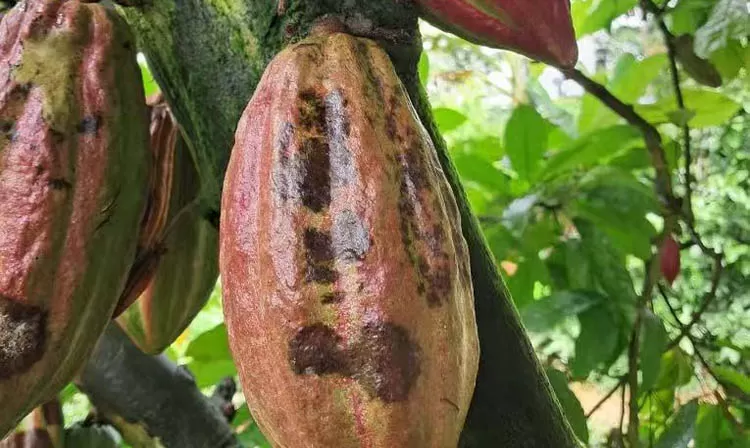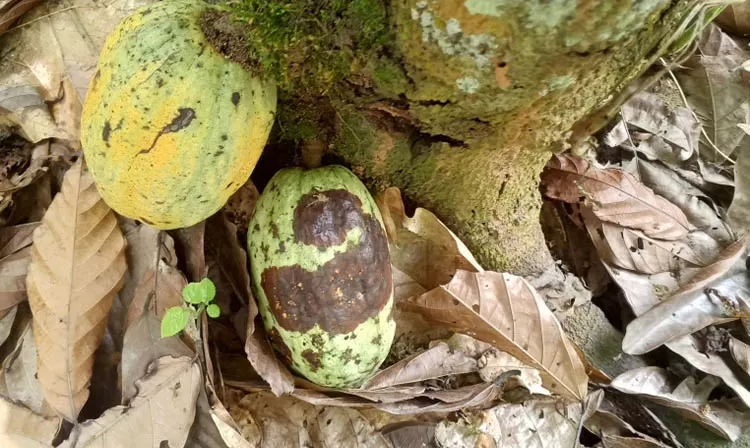Cocoa Black Pod Disease: Identification, Prevention, and Control
Cocoa has black fruit disease? First aid like this! Black pod disease (caused by Phytophthora spp.) is one of the most destructive cocoa diseases worldwide, leading to significant yield losses. Farmers and wholesalers face challenges in early detection, effective fungicide use, and long-term prevention. This guide provides actionable solutions backed by research from leading agricultural institutions.
1. Understanding Cocoa Black Pod Disease

1.1 Causes and Symptoms
The disease is caused by Phytophthora palmivora and Phytophthora megakarya, thriving in humid conditions. Key symptoms include:
- Dark, water-soaked lesions on pods
- Rapid pod rot and mummification
- White fungal growth under high humidity
For in-depth pathology, refer to CABI’s Phytophthora Disease Profile.
1.2 Conditions Favoring Disease Spread
- Prolonged rainfall (>1,500 mm/year)
- Poor drainage and overcrowding
- Infected plant debris left in fields
2. Prevention Strategies

2.1 Cultural Control Methods
- Proper spacing (3-4m between trees) to reduce humidity
- Regular pruning for better air circulation
- Sanitation: Remove and burn infected pods
2.2 Resistant Varieties
Some hybrids like T clones show partial resistance. Research from ICCO Cocoa Research highlights promising cultivars.
3. Chemical and Biological Treatments
3.1 Fungicide Applications
- Copper-based sprays (e.g., Bordeaux mixture) at 2-3 kg/ha
- Systemic fungicides (e.g., metalaxyl) in severe cases
3.2 Biological Alternatives
- Trichoderma spp. as a soil inoculant
- Phosphite fertilizers to boost plant immunity
4. Monitoring and Early Intervention

- Weekly pod inspections during wet seasons
- Immediate removal of infected pods to prevent spore spread
5. Long-Term Farm Management
- Soil health improvement with organic matter
- Drip irrigation to minimize leaf wetness
Conclusion
Cocoa has black fruit disease? First aid like this! Early detection, proper sanitation, and integrated pest management (IPM) are critical. Combining resistant varieties, fungicides, and cultural practices ensures sustainable cocoa production.
Authoritative resources for extended learning:
International Cocoa Organization (ICCO) Black Fruit Disease Monitoring Tool:https://www.icco.org
If you are interested in this article, or have any questions that need to be answered, You can find us at any time through the chat icon in the lower right corner of the webpage.
Of course, you can also check out our other social media (such as Linkedin) to learn more about us.
After these tasks are in place, the fertilization of cocoa cultivation is also essential. For specific planting and fertilization techniques, please refer to here.
Read more: Cocoa has black fruit disease? First aid like this! Read more: Cocoa has black fruit disease? First aid like this!